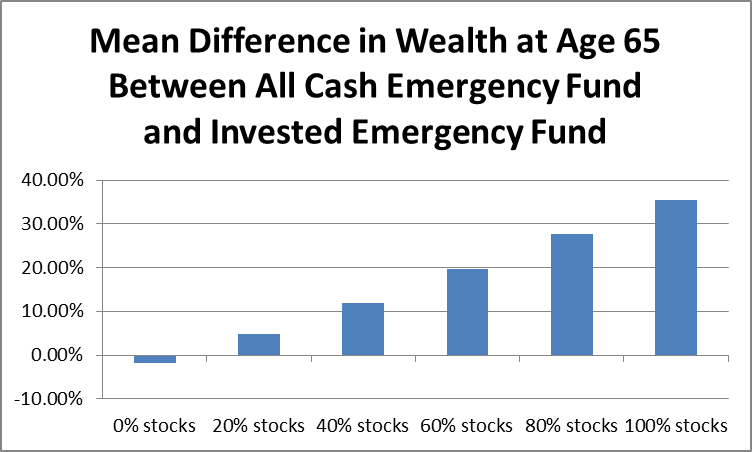Stocks for Retirement Do You Really Need to Invest In Equities
Post on: 31 Май, 2015 No Comment

Bitter Pill: Why Medical Bills Are Killing Us
Despite their gut-wrenching volatilityor, more accurately, because of itstocks tend to generate higher returns than other financial assets like bonds, CDs and Treasury bills by a wide margin over the long term. That superior performance isnt guaranteed, but its been pretty persistent over the last 100 years or longer.
Those higher long-term gains give you a practical advantage when it comes to saving for retirement. For a given amount of savings, you are likely to end up with a much larger nest egg by investing in stocks than had you shunned them. Another way to look at it is that by investing in stocks you can build a large nest egg without having to devote as much of your current income to savings.
Just how much of an advantage can stocks bestow? Heres an example based on some scenarios I ran using T. Rowe Prices Retirement Income Calculator, which you can find in Real Deal Retirements Retirement Toolbox .
Lets assume youre 30, earn $40,000 a year and are just beginning to save for retirement. The calculator assumes youll want to retire on 75% of your salary, so the target retirement income youre shooting for is $30,000 (This is in todays dollars; the calculator takes into account that your income will be much higher 35 years from now.)
First, lets see how much you would have to save if you invest in, say, a mix of 70% stocks and 30% bonds, certainly nothing too racy for a 30-year-old with 35 years until retirement. To have at least a 70% chance of retiring on 75% of your pre-retirement salary at age 65 from a combination of Social Security payments and draws from your nest egg, you would have to set aside roughly 15% of your salary each year. (Or, if you have an employer generous enough to match, say, 6% of your salary, youd have to kick in only 9% to reach 15%.)
You could improve that 70% probability by saving more or homing in on low-cost investment options. but lets stick with the scenario above as a baseline for comparison.
So how would you fare if you decide to skip stocks altogether and invest solely in bonds? Well, if you stick with a 15% savings rate, your chances of being able to generate 75% of your pre-retirement income would drop to less than 20%. Not very comforting. You can boost the odds in your favor by saving more. But to get your chances of generating 75% of pre-retirement income back up to the 70% level, you would have to save almost 25% of your income each year. Thats a standard most people would have trouble meeting.
And the percentage of salary you would have to save would be even higher if you decide to hunker down in cash equivalents like money funds and CDs: just under 30%, or almost a third of your income.
Even if you had the iron will and perseverance to meet such lofty savings targets, diverting so much income from current spending to saving could seriously diminish the standard of living you and your family could enjoy during your career.
Just to be clear, Im not suggesting anyone should just load up on stocks willy-nilly. That would be foolish, especially as you near or enter retirement, when a stock-market meltdown could derail your retirement plans. Indeed, in another column. I specifically warn against relying too much on outsize returns (whether from stocks or any other investment) to build a nest egg. Smart investing cant replace diligent saving.
The point, though, is that stocks should be part of your investing strategy prior to and even during retirement. The percentage of your savings that you devote to equities can vary depending on such factors as your age, how upset get when the market goes into a steep funk and how much youre willing to entertain the possibility of not having enough money to retire comfortably or running short of dough during retirement. Some of the links in my Retirement Toolbox section can help you settle on a stocks-bonds mix that makes sense for you.
But if after considering the pros and cons, you decide stocks just arent for you, fine. Youd just better be prepared to save your you-know-what off during your career, and keep especially close tabs on withdrawals from your nest egg after you retire.
Walter Updegrave is the editor of RealDealRetirement.com. He previously wrote the Ask the Expert column for MONEY and CNNMoney. You can reach him at walter@realdealretirement.com .
More From RealDealRetirement.com:














